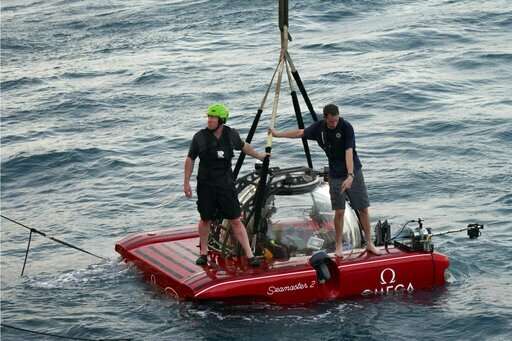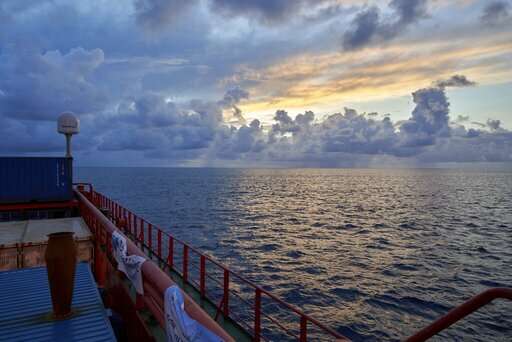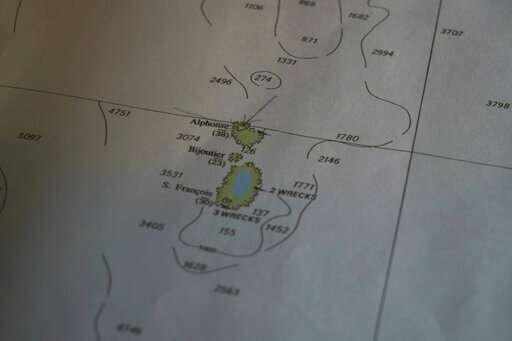Explorers to send 1st live video broadcast from ocean depths

Explorers are set to deliver the first live video broadcast from deep below an ocean's surface.
Early next week, a submersible is expected to dive to 300 meters (nearly 1,000 feet) off the Seychelles in the Indian Ocean and send images to a satellite transmitter on the mother ship. The Associated Press will send that footage around the world.
The British-led Nekton Mission highlights the state of the oceans as fears grow over climate change. The Indian Ocean is the least explored in the world, and there is almost no data from the Seychelles below scuba depth. That's about to change.
The challenge is to transmit live video from the depths without restricting the free-roaming submersible. The solution turns the images into light, which is transmitted to a decoder suspended above the submersible and then sent to the mother ship via fiber-optic cable.
"The real clever bit is, we are now transmitting two high-bandwidth streams of video data from both of the submarines simultaneously and this has never been done before," said Darryl Newborough, whose company is behind the innovation.
Keeping two submersibles and the decoder, called a depressor, in the optimal configuration is a delicate task that the mission's head of marine operations, Luke Ansell, called a "complicated ballet."

Once the live footage reaches the mother ship, it will be fed into a video control room where the best images will be selected and sent around the world.
"I think our underwater broadcast is a great outreach experience but it also provides that connectivity of people with their oceans," said Nekton Mission principal scientist Lucy Woodall. "If we all choose to take collective responsibility then we can really make sure they are managed sustainably for the future."
The first live video is expected to be broadcast within the next few days, depending on the weather and operational conditions.
The seven-week expedition is expected to run until April 19.

© 2019 The Associated Press. All rights reserved.



















